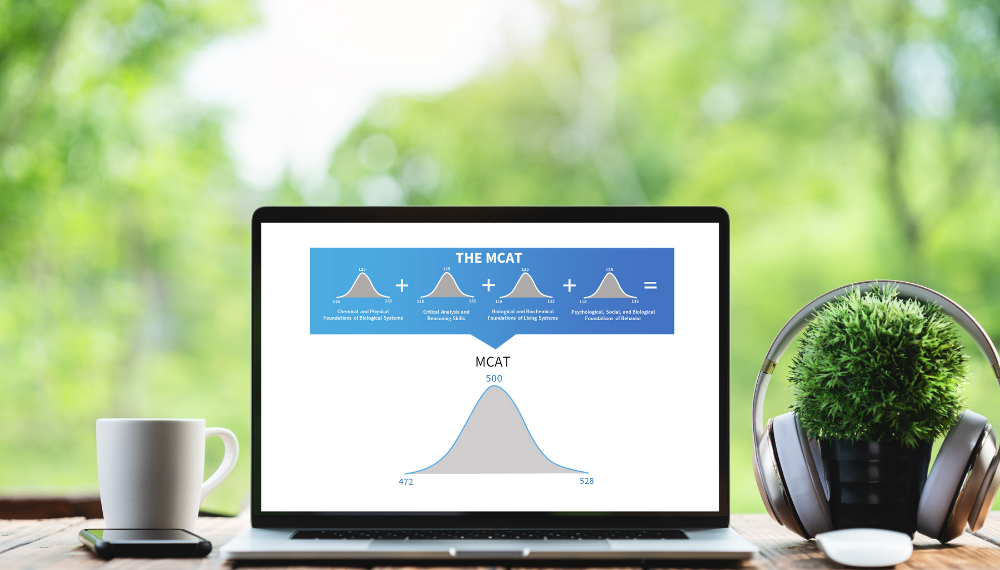If you’re on the pre-med track, you’ve likely heard about the Association of American Medical Colleges (AAMC) and maybe you’ve heard about their list of core competencies for entering medical students. But what exactly are the AAMC premed competencies, and why do they matter? Let’s break it down in a way that makes sense and is practical for you!
Table of Contents
- What Are AAMC Premed Competencies?
- How To Develop The AAMC Competencies
- Why Do the AAMC Premed Competencies Matter?
What Are AAMC Premed Competencies?
The AAMC premed competencies are essentially a guide—a checklist of the knowledge, skills, and personal attributes that medical schools look for in applicants. Think of them as a blueprint for what makes a well-rounded, prepared, and successful future medical student. There are 15 competencies, grouped into three categories: Thinking and Reasoning, Science, and Professional.
Sign up to get expert tips and exclusive invites to free MCAT classes and medical school admissions workshops!
Thinking and Reasoning Competencies
These AAMC premed competencies focus on your ability to process information, solve problems, and communicate effectively. Here’s what they include:
1. Critical Thinking
Are you able to evaluate evidence, identify patterns, and draw logical conclusions? This skill is crucial not only for problem-solving in medicine, but also for navigating complex patient cases. This is assessed with the MCAT, among other components of the application.
2. Quantitative Reasoning
Numbers don’t lie, especially in medicine. Whether it’s interpreting research data or calculating dosages, being comfortable with quantitative information is a must – a great way to demonstrate this is through statistics courses or getting involved in research.
3. Scientific Inquiry
Do you understand how to ask questions, test hypotheses, and analyze results? Medical schools value applicants who can think like scientists. Again, research experience is a great way to showcase that you meet this competency.
4. Written Communication
Can you express your thoughts clearly and concisely in writing? From personal statements to patient charts, writing is a big part of your future!
Science Competencies
No surprise here! You’re expected to have a strong foundation in the sciences. These competencies cover both your knowledge and application of scientific principles.
1. Living Systems
This refers to your understanding of biology, particularly how systems in the body work and interact.
2. Human Behavior
Knowing how people think and act is essential for connecting with patients and addressing health behaviors. No wonder there’s a psych/soc section on the MCAT!
Professional Competencies
These competencies are closely related to what it means to be a well-rounded physician, from every aspect of the profession.
1. Commitment To Learning and Growth
Choosing to be a doctor means committing to being a lifelong learner. Are you able to continually assess your academic development, reflect on your successes and mistakes? Are you open to feedback and using it to continue to grow?
2. Cultural Awareness
Can you understand and respect different backgrounds, values, and perspectives? Inclusive care improves outcomes and is critical for success as a physician.
3. Cultural Humility
Just as it is important to understand different cultures, it is vital to address your own biases and actively work to address them by seeking out other perspectives and viewpoints.
4. Empathy and Compassion
Are you able to put yourself in others’ shoes, to see things from different perspectives and attend to the needs of others? These are all at the heart of being a compassionate physician.
5. Ethical Responsibility to Self and Others
Are you honest, dependable, and accountable? Integrity is non-negotiable in medicine!
6. Interpersonal Skills
Are you able to communicate and collaborate effectively with diverse groups of people? This gets a little deeper than teamwork and considers what emotions and body language you bring to the table when communicating with others.
7. Oral Communication
Just as important as written communication, being able to explain complex ideas in simple terms is vital.
8. Resilience and Adaptability
How do you handle stress, setbacks, and change? Medical school and the profession require grit – it’s a tough path.
9. Service Orientation
Do you have a genuine desire to help others? Medical schools want students who are committed to improving the lives of those around them.
10. Teamwork and Collaboration
Medicine is a team sport. Admissions committees look for applicants who thrive in collaborative environments.
Intrapersonal Competencies
These competencies have to do with your personal qualities and attributes.
1. Ethical Responsibility to Self and Others
Are you honest, dependable, and accountable? Integrity is non-negotiable in medicine!
2. Reliability and Dependability
Can you follow through on commitments? Think long-term extracurriculars and a track record of longitudinal relationships through your letters of recommendation.
3. Resilience and Adaptability
How do you handle stress, setbacks, and change? Medical school and the profession require grit – it’s a tough path.
4. Capacity for Improvement
Are you open to feedback and willing to learn from mistakes?
How To Develop The AAMC Competencies
Now that you know what the AAMC premed competencies are, how can you ensure you’re checking these boxes? We’ve alluded to ideas throughout this blog post, but you don’t need to agonize over every one of the 15. Often, if you work towards being a “well-rounded” student, you will hit many of these skills without trying.
- Get Involved Early: Volunteer at hospitals, shadow physicians, or join research projects. These experiences can help you develop teamwork, service orientation, and resilience, and long-term relationships are key.
- Reflect Often: Think about your strengths and weaknesses in these areas. Are there gaps you can address?
- Seek Feedback: Ask mentors, professors, and peers for constructive criticism to help you grow. Sometimes having another set of eyes on your experiences can illuminate areas for growth.
- Keep a Journal: Document your experiences and how they’ve shaped your development in these competencies. This can be invaluable when writing your personal statement or preparing for interviews!
Why Do the AAMC Premed Competencies Matter?
Medical schools use these competencies to assess how ready you are to tackle the challenges of medical education and being a physician. By demonstrating strength in these areas, you’re showing admissions committees that you’re not just academically capable but also emotionally intelligent, adaptable, and committed to making a difference.
Final Thoughts
The AAMC premed competencies are essential in preparing for a career in medicine. By understanding and developing these competencies, you will not only enhance your medical school application, but also become a well-rounded and empathetic physician.
And, of course, don’t forget about the MCAT! No matter where you are in your premed journey, Blueprint MCAT is here to help when you’re ready to take the MCAT. Whether you need the flexibility of a Self-Paced Course, the instruction of a Live Course, or 1:1 assistance of a private MCAT tutor, Blueprint MCAT has the MCAT prep option that works for your learning style!
Get started with a free MCAT diagnostic, one free practice exam, and tons more MCAT prep resources.




